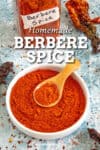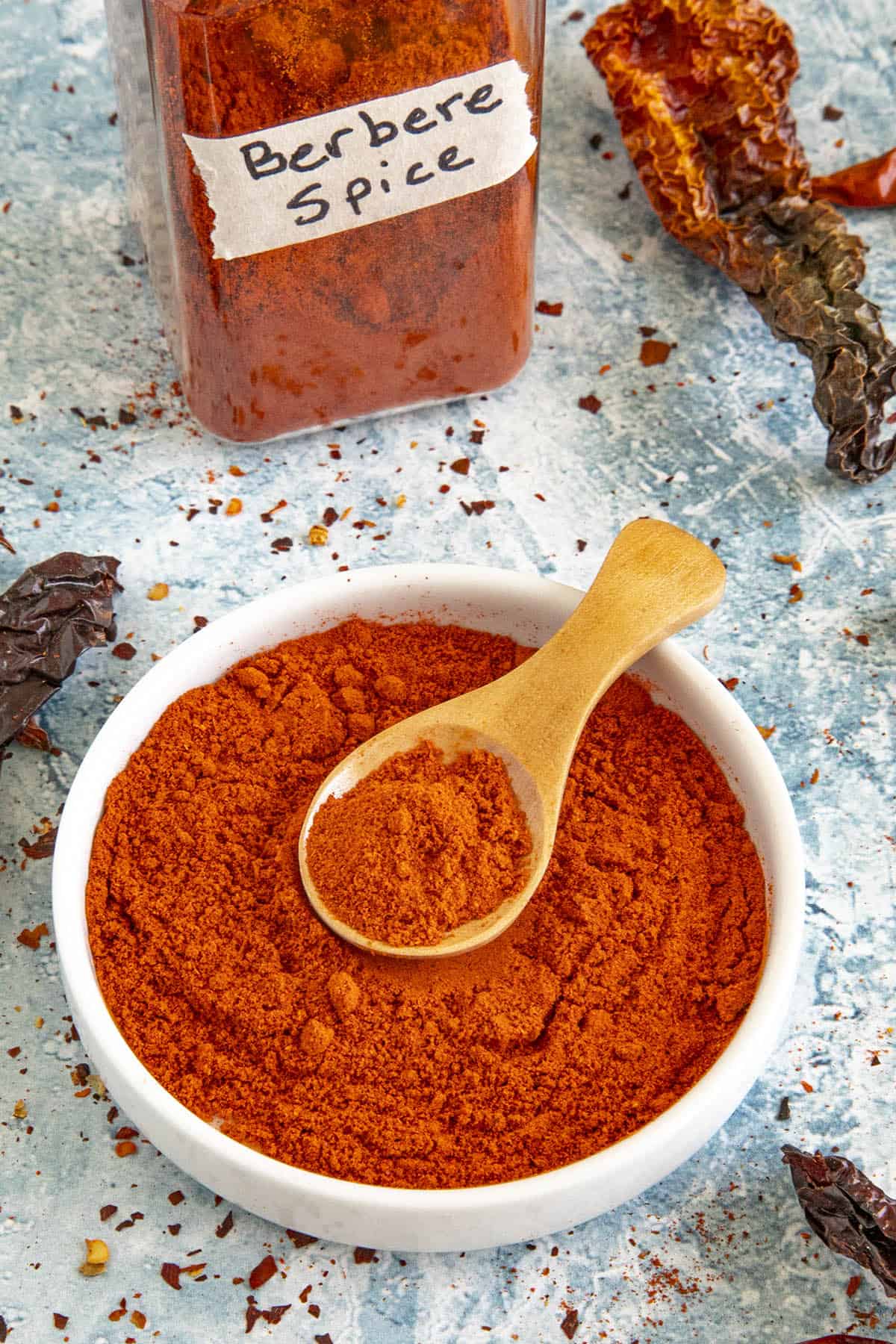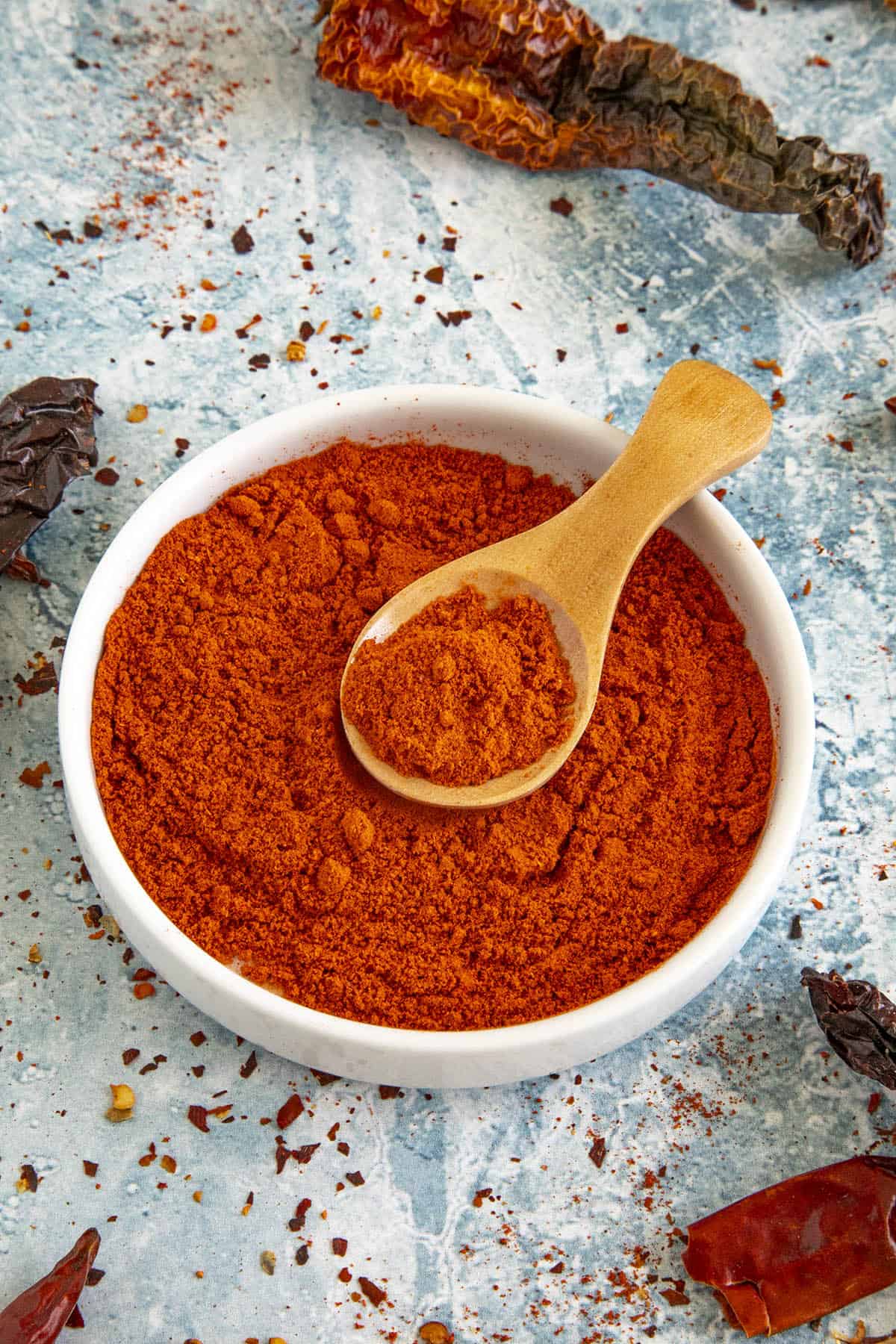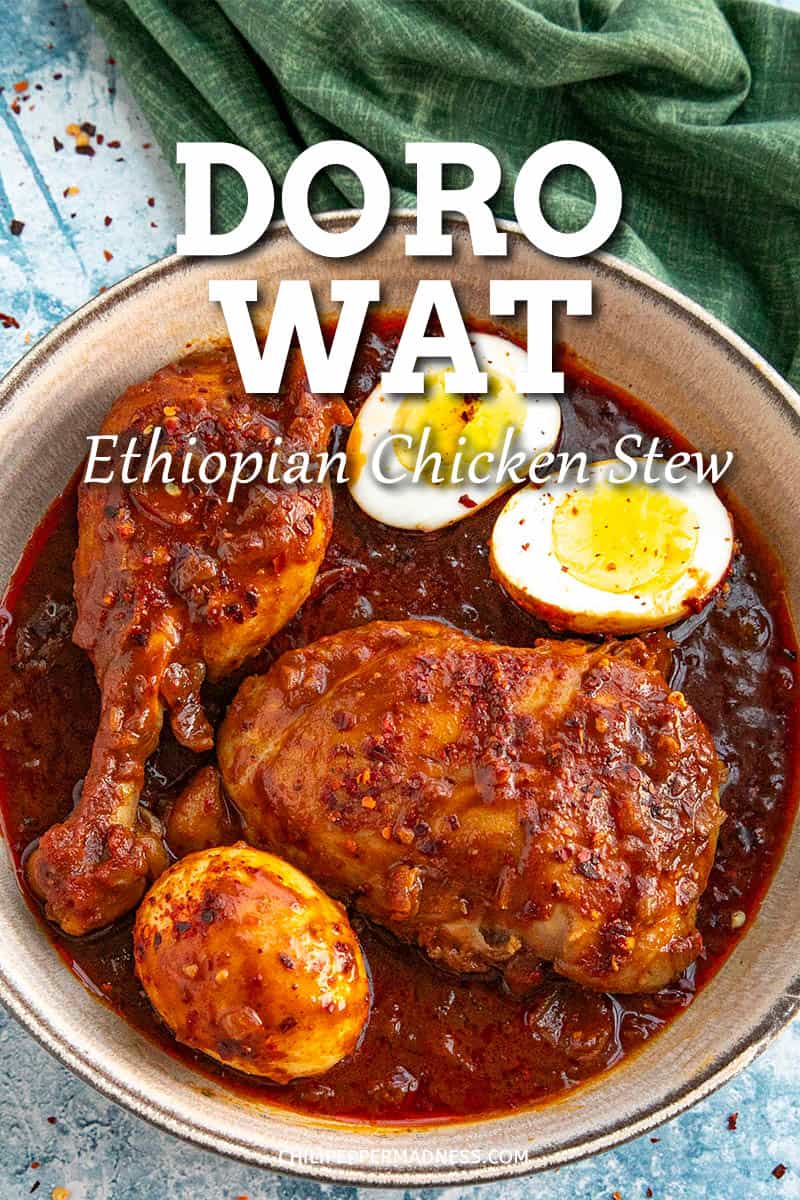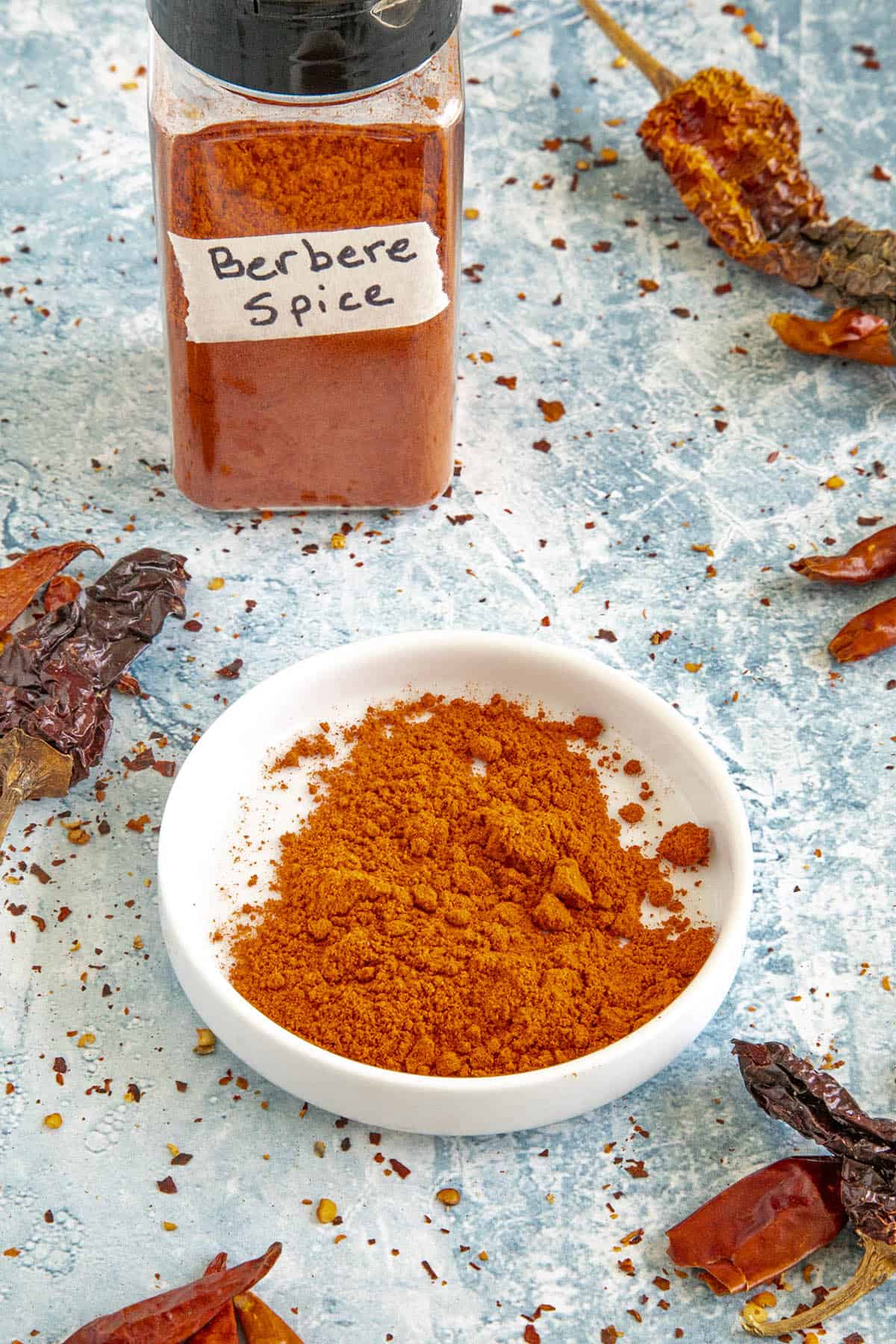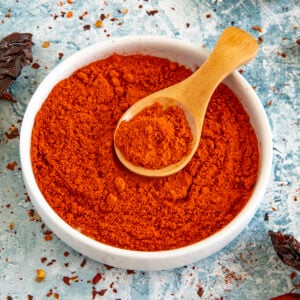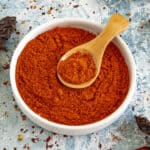Got any questions about berbere spice blend? Ask away! I’m always glad to help. It consists of the staple spices of the region, including but not limited to dried chili peppers, garlic, ginger, basil, korarima, rue, ajwain or radhuni, nigella, besobela, cinnamon, turmeric, cardamom, fenugreek, and other ground spices. Different chili powders or dried red chilies can be uses, such as paprika, cayenne, guajillo, dried New Mexican chilies, or other local chilies. The fiery red spice mixture is a key ingredient and a distinctive feature in the Ethiopian cuisine. Recipe blends vary from region to region and cook to cook, and it is easily customizable to remove or emphasize specific spices and heat levels. The flavor is compared to a mixture of BBQ, Southwestern, and Curry flavors. To me, there is rich depth of flavor unlike any other spice blend I use. I recommend to use it sparingly, depending on your tolerance, of course. While it is most often found as a dry powder in the markets or at online stores, you’ll often find it in the form of pastes. You can make the paste at home by mixing the spice with butter, oil, vinegar, wine or even simply water. It is also used in quinoa and couscous to add a kick of flavor. Berbere is quite a versatile spice blend, which is why is used to make numerous BBQ rubs, lentil soups, beef and mutton stews (as the seasoning blend goes well with the natural juicy flavor of red meat), spiced butter and even being used as a table condiment in households. Berbere works well with butters and fats, and is commonly used to season burgers to make them more “exotic”. It can also be used for making tacos, an Ethiopian/Mexican spin on the dish. Don’t limit yourself to strictly Ethiopian dishes when using Berbere. Try it out in literally any cuisine to give it a new flavor spin.
Ras el Hanout Tsire (another African blend) Cayenne
Or, more like this - bear-ber-AY. Here is a link to Merriam Webster’s site where you easily find the pronunciation of the word: https://www.merriam-webster.com/dictionary/berbere. “Ber-be-re” with the word being broken into 2 or 3 syllables respectively, depending on the source and dialect of the speaker. NOTE: This post was updated on 9/25/23 to include new information and photos. It was originally published on 9/8/19.
